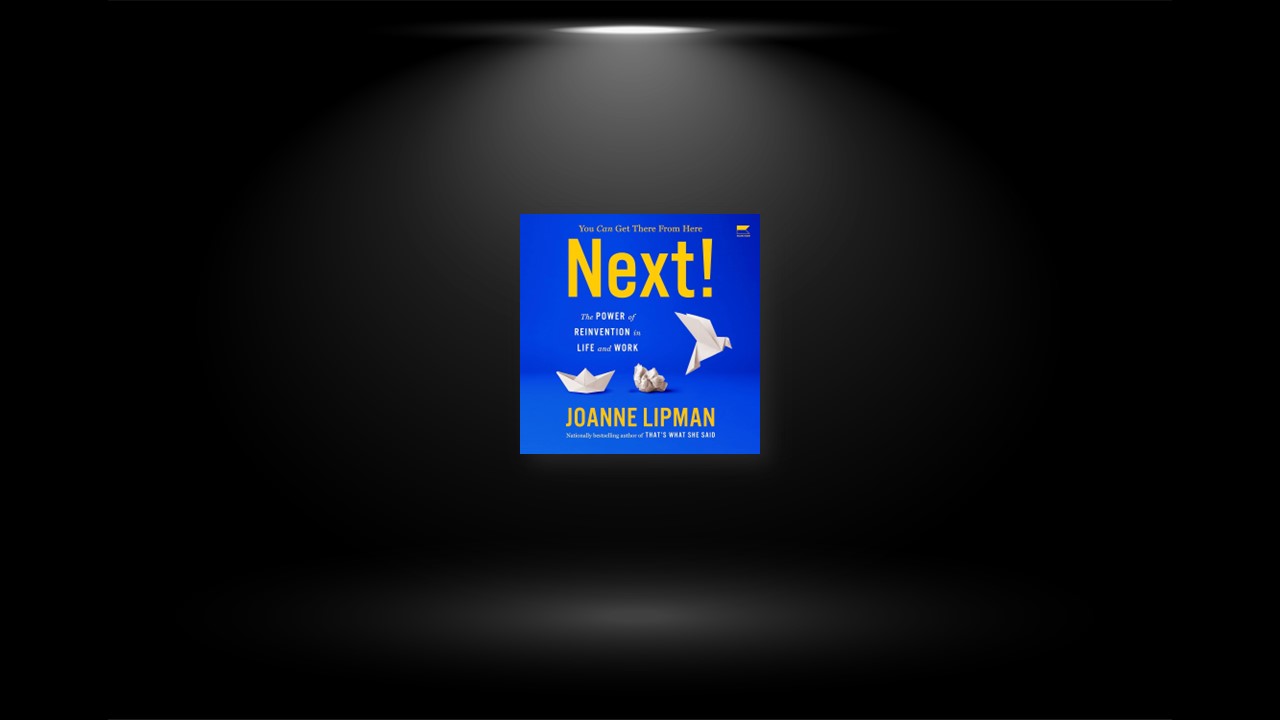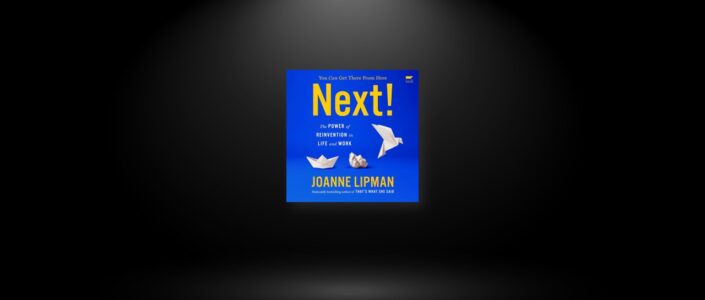Learning to Love the Struggle
There are bookshelves of tomes promising that failure is the best thing that will ever happen to you. It’s a theme of commencement speakers everywhere. “I wish you bad luck,” Supreme Court chief justice John Roberts told students at his son’s ninth-grade graduation in 2017. “If you don’t fail you’re not even trying,” Denzel Washington told University of Pennsylvania students in 2011. Stories of soaring4 success often start with an “origin story” of failure, whether it’s J. K. Rowling writing her Harry Potter series while on welfare or Mark Cuban getting fired from his first computer software job and flaming out with a powdered-milk start-up.
But when you inevitably fail, those stories can only make you feel worse. Maybe Mark Cuban can pull himself up and become a billionaire, but what relevance does that have for the rest of us? The “failure is good” refrain seems to be something that only successful people talk about. And only safely after they’ve succeeded. Does failure really lead to success? Maybe that’s just something successful people tell us to flatter themselves, or to make us poor schlubs feel better. Maybe these folks are exaggerating. Maybe they’re outliers.
There’s the added complication that in this Instagram filter age, even when you’re doing well, it’s too easy to look at others’ perfectly curated lives and feel like you’re coming up short. Everybody else seems impossibly better looking, smarter, more glamorous, and more successful than we are. Anxiety and depression have soared as a result, especially among teens. The search for perfection has reached such crazy heights.
Even objectively successful people too often feel like they’re just not cutting it. Making a transition in any circumstance is never easy. But when you feel like you’ve failed at something, it’s an even steeper hill to climb. Transformations of all sorts share common elements. You search for clues about how to transform, you struggle through the process of transitioning, you may find yourself at an impasse and stop before finally landing on a solution. But trying to reset yourself after failure adds another level of complexity. To be sure, failing at something—a class, a career, a marriage—doesn’t make you a failure.
Even under the best of circumstances, career coach Orville Pierson has calculated, the average job seeker is rejected by twenty-four decision makers before landing a job. But that’s hard to remember in the midst of a downfall. Failure seems much more personal. It can rob you of self-esteem and confidence. And most troubling, it can instill fear that prevents you from reimagining a better future. It hobbles you from taking the risks that may be necessary to take that next step.
Failure, done right, can actually be a counterintuitive predictor of success. Dashun Wang, a Northwestern University computational social scientist, has found that competitive athletes who fall just short of the podium early on—finishing fourth, below the three medalists—often end up leapfrogging the competition later. They can “overcorrect” to become champions. Jamaican sprinter, Asafa Powell, for example, who came in fourth at a championship event as a high schooler, subsequently bested his competitors to become a four-time Olympian who once set a world record for the 100-meter dash.
Eureka!
If you’ve ever woken up in the middle of the night with a great idea or suddenly come up with a brilliant insight in the shower, you’ve had an “aha!” moment too. Perhaps you’ve been stuck on a problem, or you’re searching for a new direction in life or work. Suddenly you miraculously know the solution. There’s hardly a better feeling. A great, revelatory idea pops into your brain, seemingly out of nowhere. It’s a smack-the-forehead, “eureka!” feeling. A “bolt of lightning.” A “stroke of genius.” It comes to you “out of the blue.”
There are many ways to say it, but all describe the same phenomenon: you’ve conjured a vision that is absolutely unique, and you are absolutely certain it’s correct. It pops into your head in its entirety. It’s completely original and yet so obvious that it seems inconceivable that nobody has thought of it before. You can’t wait to test-drive your new brainwave. For those who make major transitions in life or work, the “eureka!” moment can be the catalyst for change.
Some of history’s most notable breakthroughs and creations have emerged from these moments. Film director James Cameron has said that the “Terminator” appeared to him in a fever dream. J. K. Rowling has claimed that Harry Potter popped into her brain “fully formed” while she was on a train ride in 1990; the idea emerged “out of nowhere, it just fell from above, . . . Really, it was weird.” Nobel Prize–winning poet Louise Glück was working on a book that had “tormented” her for four years, when she “suddenly saw how I could shape this manuscript and finish it. It was a miracle.” Carole King said of composing her iconic song, “You’ve Got a Friend,” that it was simply there, as a finished work, when she sat down to play the piano one day: “It purely came through me.”
Conventional wisdom dictates that you need to devote a lot of thought and analysis to making a change so profound, so life altering. You wouldn’t simply abandon years of mastering a profession because you had a jolt out of the blue, right? We’d all like to think that we would carefully weigh our options and deeply probe all of the factors involved before coming to any kind of rash conclusion.
But that’s not what researchers found. Instead, participants in the research reported that this sudden clarity came to them as if delivered by an outside voice. They didn’t feel responsible for their own insights. The participants were grateful for this sudden wisdom, but they didn’t consider themselves to be the authors of their own epiphanies. Instead, they felt that these revelations were “bestowed as gifts upon them,”. Research also suggests that those who experienced these epiphanies were open to them—and that overthinking might have led them to shut down these insightful moments, or to trivialize or ignore potentially breakthrough ideas.
Move before You Move
Far from being instant, almost all major transformations are gradual, even ones that may look otherwise to the casual observer. The author calls it the “move before you move.” Most people begin edging toward a major transformation, often unknowingly, before they embrace it wholeheartedly. They are in that first stage of transformation, the search, without quite realizing it.
Giant leaps made without preparation are rare and likely to fail. Instead, those who are successful at making big changes take early steps during the search phase, often before they are aware of what they’re doing.
Sometimes those unintentional early moves seem aimless, as if you’re spinning your wheels, yet later they turn out to be revelatory. Steve Jobs, as a college dropout, sat in on a calligraphy class for fun—and it later inspired him to introduce multiple computer fonts. Google cofounder2 Larry Page, who was a serious saxophone player in high school, has said that music is the reason why he prioritized the search engine’s high-speed results: “In music you’re very cognizant of time. Time is like the primary thing.”
can take some comfort in understanding how this progression plays out. “Moving before you move” means you are doing your homework, even if subconsciously. It suggests, reassuringly, that you’re laying the groundwork and are perhaps more prepared than you realize for whatever comes next.
The beauty of moving before you move is that, even if you feel a bit lost in the wilderness right now, you’re almost certainly moving forward. You’ll likely find that nothing you are doing is wasted; you’ll call on it later.
You may well go through a dark period of struggle without seeing where that path is leading. But as uncomfortable as it may be, the key is to lean into the struggle and embrace the mess. It may not make any sense now, when you’re still in the middle of it. Sometimes the path isn’t clear until you look backward, even if it’s obscured by darkness when you look ahead.
What’s more, while you may “move before you move” for decades, the process doesn’t have to take that long. It can unfold quickly, in a matter of a few years, or even months. And it’s common to all kinds of pivots, as well as to people at every age. Moving before you move applies just as much to twentysomethings rethinking their identities as it does to “third act” career changers.
Stop What You’re Doing
The problem is modern society isn’t built for taking breaks. Most of us have a hard time willing ourselves to relax. We assume that we’re supposed to overcome an impasse or solve a tricky problem by sitting and staring at it. It’s built into our culture, our schooling, and our upbringing.
The concept of relaxation itself is suspect. Americans leave one-third of their paid vacation days on the table. During the pandemic, remote workers actually put in more hours than they had before, and burnout became endemic. “I’m too busy” is by this point a status-symbol cliché. We venerate the executives who boast about how little sleep they get, like Indra Nooyi, who slept four hours a night while running PepsiCo, or fashion designer Tom Ford, who has said he sleeps only three hours a night, or Donald Trump, who says he needs less than four hours a night. That fetishization was captured in an ad campaign from my own alma mater: “People who don’t have time make time to read the Wall Street Journal.”
Staying busy without taking a break is perhaps the least useful way to come up with original ideas. Some of the most storied innovators attribute their success to not working. Microsoft cofounder Paul Allen once said that playing rock music on his guitar at night allowed him to be a better programmer during the day. Even in the early days of the company, when he worked punishing hours, Allen would pull out his guitar to relax in the evenings. He had studied violin as a young child, switched to guitar when he was fifteen, and was a rock ‘n’ roller for the rest of his life. He saw a connection between the intensity of coding and the relaxation of his music: playing “reinforces your confidence in the ability to create,” he said. For him, he explained, playing guitar opened up new avenues in his brain, which in turn helped him reinvent personal computing. In both music and programming, “something is pushing you to look beyond what currently exists and express yourself in a new way.”
You don’t have to teach yourself guitar or listen to Jimi Hendrix—Paul Allen’s inspiration—to get that benefit. Simply daydreaming, allowing your mind to wander, can do the trick. Research has shown similar benefits from walking, spending time in nature, exercising, sleeping and napping, meditating, and showering. Pretty much any kind of break will do.


